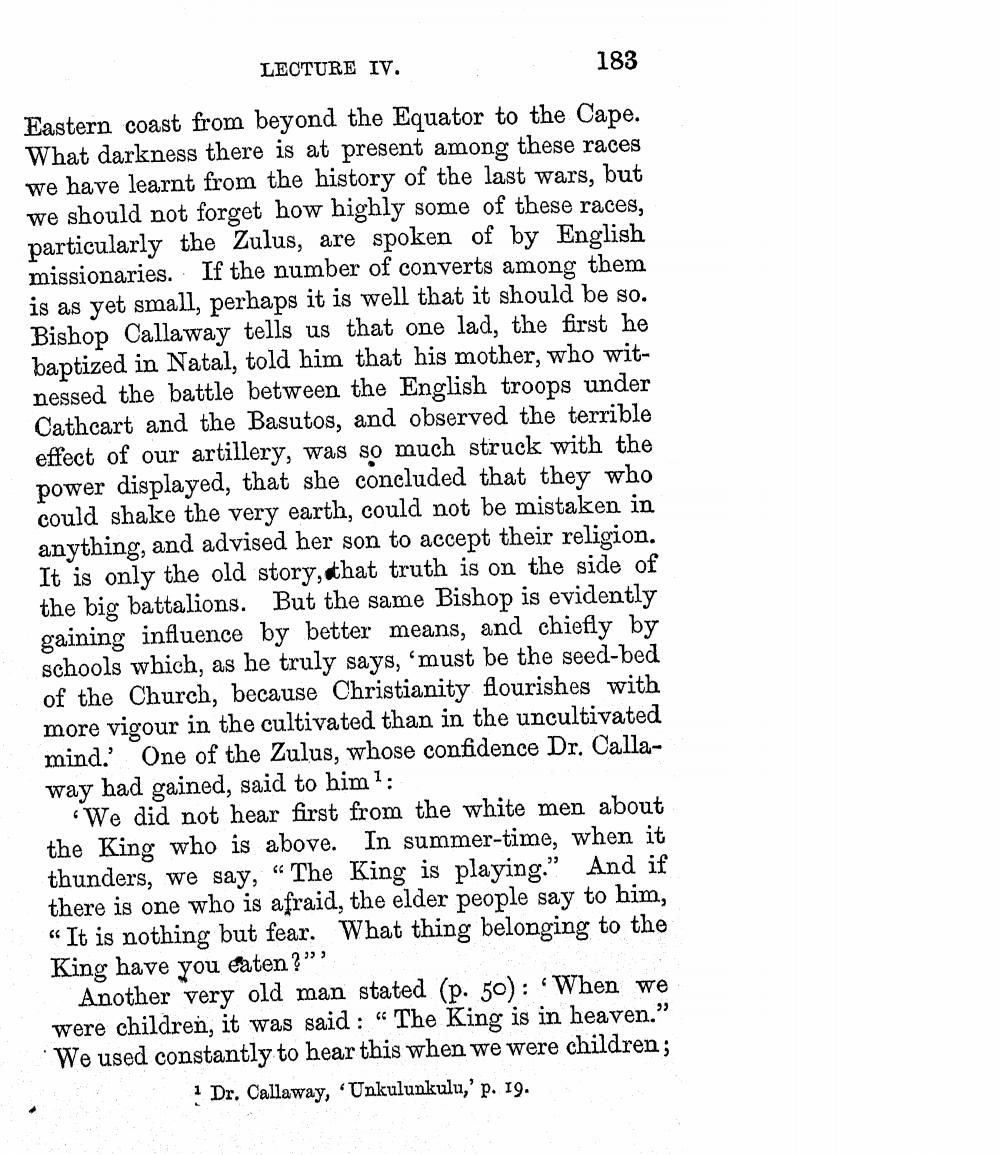________________
LECTURE IV.
183
Eastern coast from beyond the Equator to the Cape. What darkness there is at present among these races we have learnt from the history of the last wars, but we should not forget how highly some of these races, particularly the Zulus, are spoken of by English missionaries. If the number of converts among them is as yet small, perhaps it is well that it should be so. Bishop Callaway tells us that one lad, the first he baptized in Natal, told him that his mother, who witnessed the battle between the English troops under Cathcart and the Basutos, and observed the terrible effect of our artillery, was so much struck with the power displayed, that she concluded that they who could shake the very earth, could not be mistaken in anything, and advised her son to accept their religion. It is only the old story, that truth is on the side of the big battalions. But the same Bishop is evidently gaining influence by better means, and chiefly by schools which, as he truly says, 'must be the seed-bed of the Church, because Christianity flourishes with more vigour in the cultivated than in the uncultivated mind.' One of the Zulus, whose confidence Dr. Callaway had gained, said to him 1:
'We did not hear first from the white men about the King who is above. In summer-time, when it thunders, we say, "The King is playing." And if there is one who is afraid, the elder people say to him, "It is nothing but fear. What thing belonging to the King have you eaten?"
Another very old man stated (p. 50): When we were children, it was said: "The King is in heaven." We used constantly to hear this when we were children;
1 Dr. Callaway, 'Unkulunkulu,' p. 19.




